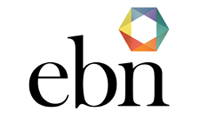
Recently I have been on holiday to the Galapagos Islands (Yes, we had a lovely time, thank you). This was definitely a “Bucket list” holiday and one which I would recommend to anyone. However, it was not our usual type of holiday. Until we did this holiday, we hadn’t done any nature-type holidays where we were continually up close and personal with the nature. I first realised this was going to be different when I looked at what they recommended we bring:
- snorkelling equipment. Not a problem, as we had our own, but they could provide anyway,
- wet suits. We didn’t have any, and we had never been anywhere where we needed them,
- wet shoes for “wet landings”,
- walking poles.
I started to panic after snorkelling equipment. This holiday list was definitely not in my comfort zone and all the pictures in the brochure showed people dressed in khaki. Khaki is not in my colour palette. After fretting for a week or two I gave myself a good talking to and decided that I would arrange my own spin on khaki. There didn’t seem to be any mention of people dying on the holiday, so I reckoned I would be OK. So, I bought all the stuff and started the adventure.
What I hadn’t realised was the continual challenge of getting on and off the boat into dinghies, often in choppy waters, and getting to land hanging on for dear life. The first time, I had a major meltdown, which the guide pretty much ignored. This wasn’t his first rodeo! Outside my comfort zone and I couldn’t have seen my comfort zone through binoculars!
Slowly, I learnt to relax and decided not to ask how many they lost in an average holiday.
So, what did I learn?
- That you don’t need wet shoes for wet landings, the water is very clear, and you can easily see where you are standing so bare feet, and then put on walking shoes is less faff.
- You need to leave any dignity you have behind. When getting on and off dinghies you will be hauled, pushed, pulled, and grabbed. You just have to give yourself up to the people who do this all the time. They get you where you need to be.
- If you are 6 foot and do a wet landing the bottom of your shorts may get a bit damp. If you do a wet landing and like me you’re are below 5 foot, your top knicker elastic will be soaked!
I learnt a lot, and some of it was about myself. I realised that occasionally being out of your comfort zone is a good thing. Would I do it again? No, bucket list entry has been ticked. Would I recommend it to others? Absolutely.
So, does networking place you outside your comfort zone? Then here is my gift to you: my Top 20 networking tips. Just follow this link: ebn.uk.com and complete the form to receive your copy.
Have fun,
Glenys




Recent Comments